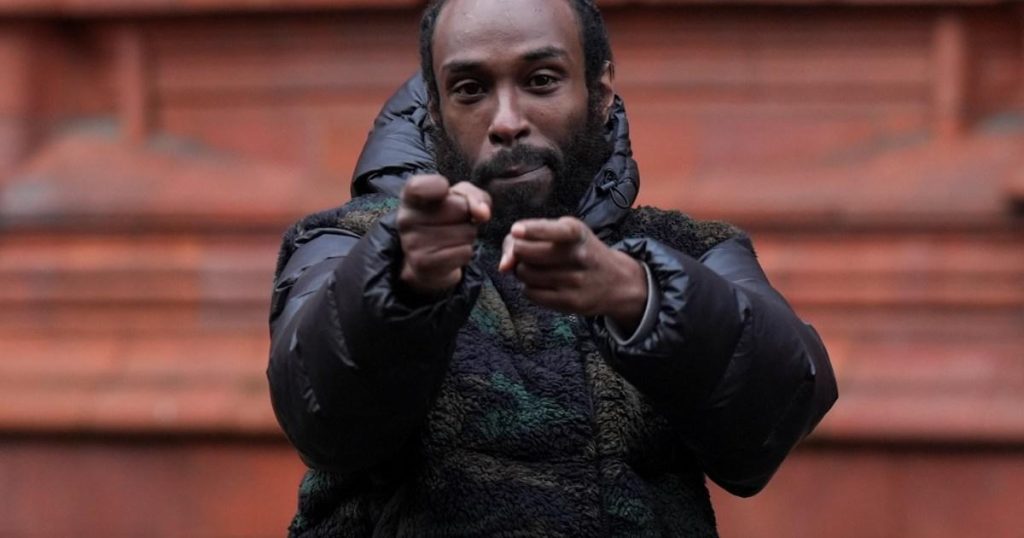The Case of Twista Cheese: A Rapper’s Video, a Perceived Threat, and the Limits of Free Speech
Omar Abdirizak, a Birmingham-based rapper known as Twista Cheese, found himself at the center of a legal battle following the release of a controversial TikTok video in 2024. The video, which garnered over two million views, featured Abdirizak, dressed in casual attire and identifying himself as a "Somali pirate," rapping in the drill genre. His lyrics included references to having "Muslims in every corner" and "look at the artillery we’ve got," accompanied by what appeared to be a gun gesture. Tommy Robinson, the founder of the far-right English Defence League (EDL), whose real name is Stephen Yaxley-Lennon, viewed the video as a direct threat against his life and promptly reported it to the authorities, sharing it on X (formerly Twitter) and urging a police investigation.
Abdirizak’s defense hinged on the argument that his actions fell within the realm of artistic expression and entertainment. He claimed the alleged gun gesture was not intended as such and that his words were meant as self-defense, a hypothetical response to potential aggression. He argued that the “bam, bam, bam” lyrics were part of the performance and did not constitute a genuine threat. He further explained that the video was created in response to discussions he had seen about the summer riots of 2023, involving broadcaster Piers Morgan and influencer Andrew Tate. Abdirizak stated his intention was to “put Tommy Robinson in his place,” believing Robinson’s views contributed to the unrest.
The prosecution, however, contended that Abdirizak’s video transcended the boundaries of free speech and ventured into criminal territory. Prosecutor Tim Talbot-Webb highlighted the context of the video’s release, coinciding with a period of national disorder marked by attacks on mosques and other institutions. He argued that the references to guns and artillery, coupled with the timing of the video’s release, were inherently menacing and likely to cause fear of serious violence among viewers. Talbot-Webb emphasized that the video went beyond artistic expression and constituted a credible threat.
District Judge David Wain ultimately sided with the prosecution. He determined that the "natural meaning" of the video, particularly the references to firearms, constituted a menacing message. Rejecting Abdirizak’s claims of artistic expression and self-defense, the judge concluded that the rapper’s intent was indeed to convey a threat. This verdict underscores the complex interplay between freedom of expression and the legal limitations on speech, especially when it is perceived as inciting violence or causing fear. The case highlights the challenges in interpreting artistic expression, particularly within genres like drill music, which often employ violent imagery and aggressive language.
Abdirizak was found guilty of sending a message of a menacing character under the Communications Act 2003. The conviction carries significant implications for the rapper and raises broader questions about the regulation of online content and the responsibility of artists in their creative expression. The case further highlights the potential consequences of online platforms like TikTok in disseminating potentially inflammatory material. The rapidity with which such content can spread and the diversity of interpretations it can elicit underscore the need for nuanced legal frameworks that balance the protection of free speech with the prevention of harm.
The sentencing hearing was scheduled for February 12, 2025. In addition to the menacing communication charge, Abdirizak faced sentencing for possession of cannabis and a racially aggravated public order offense. The court granted him conditional bail, recognizing the need to assess potential underlying mental health issues. The case of Twista Cheese serves as a cautionary tale about the potential legal ramifications of online expression, particularly in a climate of social unrest and heightened sensitivities surrounding issues of race, religion, and political affiliation. The incident highlights the need for careful consideration of the potential impact of online content and the responsibility that individuals bear in exercising their right to free speech.











